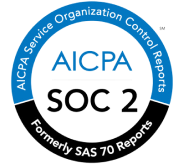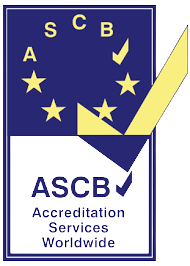Table of Content
- Introduction
- Culture vs Compensation: How to Balance the Two with HRMS?
- Understanding Organisational Culture
- The Significance of Compensation
- The HRMS Advantage
- Strategies for Balancing Culture and Compensation
- Define Core Values:
- Transparent Communication:
- Performance-based Incentives:
- Flexibility in Benefits:
- Regular Feedback and Recognition:
- Data-driven Decision Making:
- Continuous Learning Opportunities:
- Conclusion
- FAQs
Introduction
In the contemporary corporate landscape, a seismic shift known as the Great Resignation has sent shockwaves through organisations. Triggered by gruelling working hours, stringent deadlines, and a lack of personal time, this phenomenon led management to respond with a seemingly simple solution: offering higher paychecks. But the question lingers, did this approach prove effective? If the resounding answer is "NO," then what is the true solution that can reshape the course of culture vs compensation and find the balance between the two?
Tony, founder of Zappos, introduced foundational principles to not only define the organisation's culture but also fundamentally transform the work environment.
For Zappos, the workplace ceased to be a mere location of employment; instead, it evolved into a realm where employees eagerly anticipated their arrival each day. Their work was no longer a task; it became a purposeful endeavour laden with newfound significance.
In an illuminating Glassdoor survey, a resounding consensus emerged: 94% of executives and 88% of employees unanimously believed that workplace culture holds greater significance than compensation when contemplating a new organisational journey.
This realisation brings to the forefront the monumental question: why does culture wield greater influence than compensation in today's cutthroat corporate arena, and how can this understanding be harnessed to elevate motivation, productivity, and loyalty to unprecedented heights?
Let us embark on a journey to unravel the profound impact of culture versus compensation, guided by the transformative prowess of uKnowvva HRMS software.
As we delve deeper, the symbiotic relationship between a vibrant workplace culture and the innovative capabilities of HRMS software will illuminate a path toward sustainable success, where employees thrive and organisations flourish.
Want to skip the content above?

Culture vs Compensation: How to Balance the Two with HRMS?
Amid the ever-evolving dynamics of today's workforce, it's crucial to find a synergy between organisational culture and employee compensation. With the advent of HRMS, organisations have a powerful tool at their disposal to achieve this balance. HRMS integrates various HR functions, including payroll, benefits administration, and performance management, allowing for streamlined processes that contribute to a harmonious work environment.
Understanding Organisational Culture
Organisational culture refers to the shared values, beliefs, behaviours, and norms that shape the work environment. It influences how employees interact, collaborate, and approach their tasks. A strong and positive culture fosters employee engagement, job satisfaction, and loyalty.
The Significance of Compensation
Employee compensation, on the other hand, encompasses not only salary but also benefits, bonuses, and other incentives. Fair compensation is crucial to attract and retain top talent, as it reflects the value an organisation places on its employees' contributions.
The HRMS Advantage
HRMS platforms offer a comprehensive solution for managing both culture and compensation. Through automated processes, they enable HR departments to efficiently handle payroll, track performance, and administer benefits. This technology provides insights that aid decision-making in nurturing a culture aligned with the company's goals while ensuring competitive compensation packages.
Strategies for Balancing Culture and Compensation
Define Core Values:
Clearly articulate the organisation's core values and ensure they are reflected in everyday practices. HRMS can reinforce these values by aligning them with performance metrics.
Transparent Communication:
Use HRMS to communicate transparently about compensation structures and any changes. This fosters trust and reduces misunderstandings.
Performance-based Incentives:
Implement performance-based incentive programs using HRMS to recognize and reward employees who contribute to the desired culture.
Flexibility in Benefits:
HRMS allows customisation of benefits packages to suit individual employee needs, enhancing job satisfaction and overall well-being.
Regular Feedback and Recognition:
Leverage HRMS to facilitate regular feedback and recognition, reinforcing a culture of appreciation and growth.
Data-driven Decision Making:
Utilise HRMS analytics to make informed decisions about compensation adjustments and cultural enhancements.
Continuous Learning Opportunities:
Embed learning and development initiatives within HRMS to foster a culture of continuous growth.
Conclusion
In the ongoing journey to create a thriving workplace, achieving harmony between culture and compensation is paramount. The integration of HRMS empowers organisations to navigate this intricate terrain effectively.
By utilising HRMS to align values, communicate transparently, and make data-driven decisions, businesses can cultivate a culture that resonates with employees while offering competitive compensation packages. This dynamic synergy lays the foundation for enduring success in the ever-evolving business landscape.
FAQs
What is the Role of HRMS in Culture and Compensation Balance?
HRMS serves as a powerful tool to streamline HR functions, making it easier to align compensation strategies with the organisation's culture. It enables better communication, data-driven decisions, and personalised benefits.
Can a Strong Culture Compensate for Lower Salaries?
While a strong culture can enhance job satisfaction, it may not fully compensate for significantly lower salaries. Compensation remains a fundamental factor in attracting and retaining skilled employees.
How Does HRMS Ensure Fair Compensation?
HRMS provides transparency in compensation by automating processes and ensuring consistent application of compensation policies. This reduces biases and ensures fair pay for employees in similar roles.
Is It Possible to Change the Culture of an Established Organisation?
Yes, it is possible to change an organisation's culture over time. HRMS can play a pivotal role by aligning new practices with desired cultural shifts and tracking progress.
What Role Does Leadership Play in Culture and Compensation Balance?
Leadership sets the tone for the organisation's culture and compensation philosophy. With HRMS, leaders can ensure that their actions and decisions align with the desired cultural values and compensation principles.












